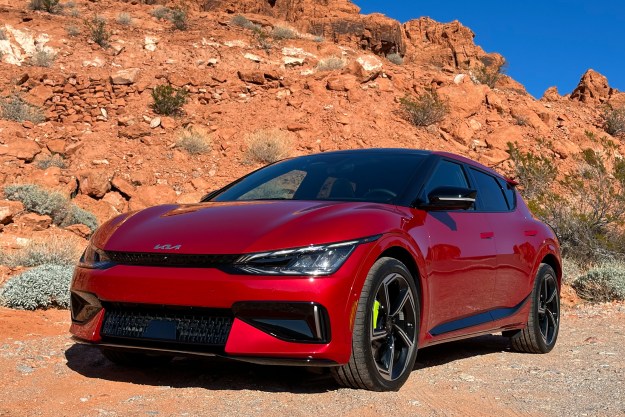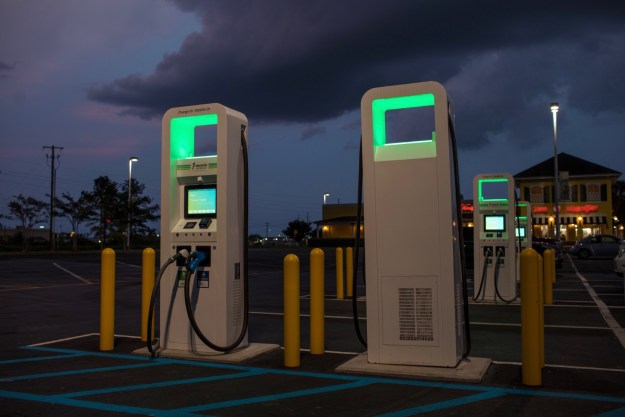
“It’s possible, yes,” replied company CEO Andy Palmer when asked about whether he’s planning a Roadster rival. “There are various challenges involved in making an EV, and the one everyone focuses on is the battery — the management system and the chemistry involved,” he added during an interview with British magazine Auto Express.
Palmer believes Aston Martin could have an edge over Tesla, too. “The interesting thing is that the other three key components of any electric car – weight, aerodynamic drag, and rolling resistance – are areas sports car manufacturers, and us in particular, are really good at mastering. That puts us at an advantage over other brands who are making some big claims – such as Tesla, with a lightweight roadster. I think we could be in that space relatively easily,” he said. That’s fighting talk in the automotive industry.
Aston Martin is working on bringing its first battery-electric vehicle to the market. It will be based on the Rapide, its formidable V12-powered sedan, and it will be designed in-house after the joint-venture it formed with China-based LeEco fell apart. Pricing will start at about $250,000 and the firm will cap global production at 155 units, or a third of what it initially announced. It’s not unreasonable to speculate some of the RapidE’s tech could seep down into a future electric model built in greater numbers.
Unlike some of its rivals, notably Porsche, Aston Martin will skip the plug-in hybrid phase. “I don’t see the point. You have the complexity and costs of a regular engine, and the complexity and costs of a plug-in electrified system,” Palmer told Auto Express. The company will instead focus on standard hybrid drivetrains built around a 48-volt architecture.
It will be interesting to watch this nascent segment of the market develop in the next few years. Tesla tentatively scheduled the first Roadster deliveries for 2020, a time frame which gives Aston Martin time to plan its offensive. Maserati recently hinted it’s also considering a battery-powered sports car, though we haven’t heard much about it since 2016, and McLaren has started testing an electric powertrain for its breed of high-end cars.
Editors' Recommendations
- Tesla faces new rival as a tech giant launches its first EV
- Kia reinvents the van with its electric Platform Beyond Vehicles
- The fastest electric cars, ranked by 0-60 mph acceleration
- The cheapest electric cars you can buy
- What are the different types of electric car chargers?




